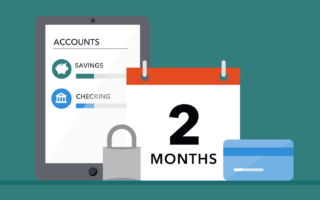Credit reports can sometimes contain errors that can lower your credit score. Learn how to take steps to remove negative information from your credit report.
Checking your credit report regularly is a good way to detect potential inaccuracies, such as incorrect account information and balances. If you find an error on your credit report, it’s important to remove it – otherwise it could affect your credit score.
Accounts you never opened or credit inquiries you never authorized could indicate fraud. You can file a dispute with the credit bureau to remove the incorrect information from your credit report.
Your credit report is kind of like a permanent record of your finances. You’d expect a personal document like this to be accurate and reflective of your credit history. While most people don’t have errors on their credit reports, a 2021 Consumer Reports® survey found that 34% of Americans surveyed had found at least one error on their credit report .
If you discover an error on your credit report, the good news is that it’s fairly easy to dispute it. But where do you start? Let’s look at how to find credit report errors, how to remove them from your credit report, and what you can do if there are legitimate financial errors on your credit history.

Checking your credit report regularly can help you catch errors
There is a common misconception that ordering a credit report or even just checking your credit score will have a negative impact on your credit. Fortunately, this is not the case. It is recommended that you check your credit score regularly and request credit reports periodically to ensure that the information is up to date. 2 The three major consumer reporting companies (Equifax, Experian and TransUnion) can provide you with one free credit report every 12 months. 3 You can also access your credit report through American Express® MyCredit Guide, a free service that allows you to view your FICO® score and Experian® credit report. (FICO is a registered trademark of Fair Isaac Corporation in the U.S. and other countries.)
Taking advantage of the free credit check you’re entitled to won’t hurt your credit score, and it can help you uncover mistakes that might otherwise go undetected and affect your credit score and credit history.
Common credit report errors to watch out for
Once you receive your credit report, the next step is to look carefully for incorrect or incomplete information. You need to make sure the following information is accurate and remove anything that is incorrect from your credit report as soon as possible:
- Personal information , such as your name, address, social security number, and other general data about you.
- Account data , such as whether a credit card or loan account is open or closed and the date it was opened or closed, whether you are the account owner or an authorized user, and whether there are any late payments or past due accounts.
- Balance information , including statement and loan balances and credit limits.
- Payment history , including payment dates, past due payments, and information on any missed payments.
Did you know that as an extra security measure and to prevent fraud, American Express reports a reference number – not your actual account number – to the credit bureaus?
If you see any personal information that doesn’t match your own, accounts you’ve never opened, incorrect balances or payment history, or credit inquiries you didn’t authorize, it could indicate identity theft or fraud – and could affect your credit score. It’s important to file a dispute to remove such errors from your credit report as quickly as possible and take steps to restore your credit score and prevent fraud. For more information on fraud and how to report it, see “How to Prevent Credit Card Fraud.”
Remove inaccurate items from your credit report
All three major credit bureaus offer ways to dispute errors in your reports by phone, mail, or online. The online process may be easier because it usually provides a template for you to use, but if you prefer to dispute, government agencies such as the Federal Trade Commission (FTC) and the Consumer Financial Protection Bureau (CFPB) offer template letters. Submit by mail.
When submitting a dispute, please be sure to clearly state:
- Describe each controversial item.
- Explain the problem at hand.
- Include and cite any relevant documentation that helps support your claim, including a copy of your credit report.
- Request deletion or correction.
After you dispute an error on your credit report, you should receive a response in about a month. The incorrect information will usually be updated or removed. For more information, read “How to Dispute Your Credit Report with All 3 Agencies.”
What to do if your credit report errors haven’t been cleared
If your dispute is resolved and the inaccurate information has not been corrected, or you disagree with the outcome, there are still some steps you can take:
- Present new and relevant evidence and re-file the objection.
- Contact the company that provided the dispute information and send them a copy of your dispute .
- Add a dispute statement to your credit report. A dispute statement allows you to explain why you believe certain information that appears on your report is incorrect. This statement will appear every time you get your credit report.
- File a complaint with the CFPB. The CFPB is dedicated to helping the public correct financial misconduct. Most companies will respond within 15 days .
How to Remove Negative Items from Your Credit Report
There are legitimate information on your credit report that could lower your credit score, such as closed accounts or nonpayment. Unfortunately, credit reporting agencies will not usually remove verifiable information, no matter how many times you dispute it. Instead, such information typically disappears after 7-10 years .
It’s important to check your credit report regularly and keep an eye out for any errors. If you find an error on your credit report, dispute it as soon as possible. Removing certain information from your credit report (especially if it doesn’t belong to you) can help prevent damage to your credit score and can even prevent fraud.
Derek Moran is a freelance writer and researcher whose work focuses on digital marketing and financial services.
All Credit Intel content is written by freelance writers and is commissioned and paid for by American Express.
Learn how to report credit card fraud and protect your finances. Here are some things to consider when reporting credit card fraud so you can take steps to combat unauthorized transactions.
The materials on this website Credit Intel provides to you are for informational purposes only and are intended for use by U.S. residents only and do not provide legal, tax or financial advice. If you have any questions, please consult your own professional legal, tax and financial advisors.


